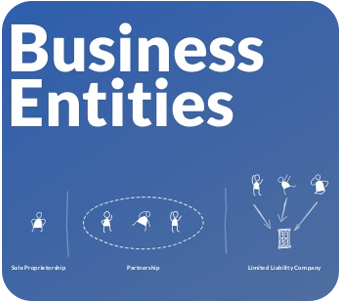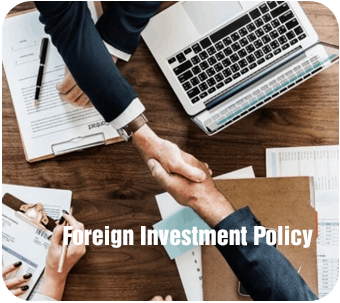Malaysia
Aderson Business
Consulting Sdn Bhd
Level 15.01, 1 First Avenue, D’taran Bandar Utama
PJ 47800 Selangor, Malaysia
Email: Malaysia@1stopconsultant.com

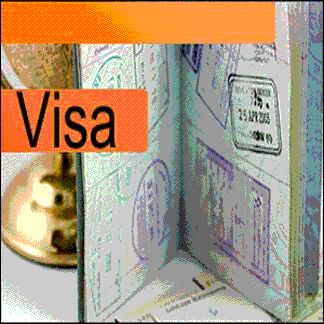
- do not require a visa to enter into Malaysia: Commonwealth countries (except Bangladesh, Cameroon, Ghana, Mozambique, Nigeria, Pakistan and Sri Lanka), and the United States (except for employment purposes)
- do not require a visa for visits not exceeding two weeks: Iran, Iraq, Libya, Macao SAR (Travel Permit/Portugal CI), Palestine, Sierra Leone, Somalia, South Yemen and Syria
- do not require a visa for visits not exceeding one month: All ASEAN countries (except Myanmar), Armenia, Azerbaijan, Barbados, Belarus, Benin, Bolivia, Bulgaria, Cambodia, Cape Verde, Chad, Chile, Costa Rica, Ecuador, El Salvador, Estonia, Gabon, Georgia, Greece, Guatemala, Guinea Republic, Haiti, Honduras, Hong Kong SAR, Kazakhstan, Latvia, Lithuania, Macao SAR, Macedonia, Madagascar, Moldova, Mauritania, Mexico, Moldova, Monaco, Mongolia, Nicaragua, North Korea, North Yemen, Panama, Paraguay, Portugal, Russia, Sao Tome & Principe, Senegal, Slovenia, Sudan, Surinam, Tajikistan, Togo, Ukraine, Upper Volta, Uzbekistan, Vatican City, Venezuela, Zaire and Zimbabwe
- do not require a visa for visits not exceeding three months: Albania, Algeria, Argentina, Australia, Austria (Vienna), Bahrain, Belgium, Bosnia-Herzegovina, Brazil, Croatia, Cuba, Czech Republic, Denmark, Egypt, Finland, France, Germany, Hungary, Iceland, Ireland, Italy, Japan, Jordan, Kyrgyzstan, Kuwait, Kyrgyz Republic, Lebanon, Liechtenstein, Luxembourg, Morocco, Netherlands, Norway, Oman, Peru, Poland, Qatar, Romania, San Marino, Saudi Arabia, Slovakia, South Korea, Spain, Sweden, Switzerland, Tunisia, Turkey, Turkmenistan, United Arab Emirates, United Kingdom, Uruguay and Yemen
- require a visa to enter into Malaysia: Afghanistan, Angola, Bangladesh, Bhutan, Burkina Faso, Burundi, Cameroon, Central African Republic, China, Colombia, Comoros, Congo Democratic Republic, Congo Republic, Cote d’Ivoire, Djibouti, Equatorial Guinea, Eritrea, Ethiopia, Ghana, Guinea-Bissau, Hong Kong (Certificate of Identity or Document of Identity), India, Liberia, Mali, Mozambique, Myanmar (normal passport), Nepal, Niger, Nigeria, Pakistan, Rwanda, Serbia & Montenegro, Sri Lanka, Taiwan, United Nations (Laissez Passer) and Western Sahara
- require a visa, and permission must be granted by the Ministry of Home Affairs: Israel.

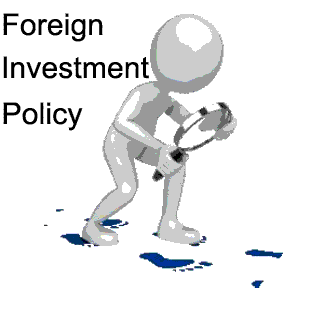
- the FIC guidelines on the acquisition of interests, mergers and takeovers by local and foreign interests are repealed. The FIC will, therefore, no longer process such share transactions, nor impose equity conditions on such transactions. However, the equity conditions imposed by the respective sector regulators will continue to apply. For strategic sectors (such as information and communication technologies, oil & gas, mining, manufacturing etc.), sector regulators are best placed to oversee their respective sectors and to tailor equity conditions according to the requirements and strategic nature of each sector. There will no longer be any equity conditions imposed on sectors not deemed strategic
- the conditions imposed on fund-raising exercises by listed companies has also been significantly eased in the context of raising Malaysia’s attractiveness as a listing destination
- pursuant to the revised FIC guidelines on the acquisition of properties by local and foreign interests effective from 1 January 2010, FIC will only process transactions involving the following: – direct acquisition of property valued at rM20 million and above, resulting in the dilution in the ownership of property held by Bumiputera interest and/or government agency – indirect acquisition of property by other than Bumiputera interest through acquisition of shares, resulting in a change of control of the company owned by Bumiputera interest and/ or government agency, having property more than 50 percent of its total assets, and the said property is valued more than rM20 million.
- pioneer status with income tax exemption of 100 per cent of the statutory income for a period of ten years or ITA of 100 per cent on the qualifying capital expenditure incurred within a period of five years to be offset against 100 per cent of statutory income for each year of assessment
- eligibility for R&D grants (for majority Malaysian-owned MSC status companies).
- creative industries and related services
- educational services
- financial advisory and consulting services
- healthcare and related services
- logistics services ·tourism-related activities.
The ISP includes fiscal and non-fiscal incentives as follows:
- corporate tax exemption for ten years provided operations commence on or before 31 December 2015
- exemption from withholding tax provisions on payments for services and royalties to non-residents for a period of ten years from the date of commencement of operations
- exemption from the FIC’s rulings
- permission to source capital globally ·permission to employ foreign knowledge workers without restriction.
The company must be an IRdA-status company to qualify for the above incentives. Essentially, an IRdA-status company must fulfil the following two general criteria:
- involving in one of the six targeted services-based sectors mentioned above
- be situated in the designated IRdA-approved zones.
The latest incentive package, which was announced by IRdA on 9 October 2007, complements the initial announcement. The Isp is not only intended for Iskandar Malaysia-status companies and foreign knowledge workers, but is now extended to include approved developers and approved development managers.

- gains and profits from a trade, profession and business
- gains or profits from an employment (salaries, remunerations, etc.)
- dividends, interests or discounts
- rents, royalties or premiums
- pensions, annuities or other periodic payments
- other gains or profits of an income nature.

- the contract of employment must be in writing and state the notice period required to terminate it
- wages must be paid by the seventh day after the last day of any wage period. A pay slip must be given to the employee, detailing the wages and deductions made
- normal hours of work must not exceed eight hours per day, 48 hours per week, more than five consecutive hours a period of leisure of not less than 30 minutes’ duration and in excess of a spread over period of 10 hours in one day
- employees are entitled to paid holidays on at least 10 gazette public holidays in any one calendar year and on any day declared as a public holiday under section 8 of the Holiday Act 1951
- employees must be given eight days’ paid annual leave if having less than two years of service, 12 days’ paid annual leave if having two years but less than five years of service, and 16 days’ paid annual leave if having five or more years of service
- employees are entitled to 14 days’ paid sick leave if having less than two years of service, 18 days’ paid sick leave if having two but less than five years of service and 22 days’ paid sick leave if having over five years of service per calendar year, and where hospitalization is necessary, up to a maximum of 60 days’ paid sick leave per calendar year
- female employees are entitled to not less than 60 days’ consecutive paid maternity leave for up to five surviving children
- overtime work must be paid at a minimum of one and a half times the hourly rate of pay on normal working days, twice the hourly rate on rest days and triple the hourly rate on public holidays
- an employer may not terminate the services of a local employee in favor of a foreign employee and, if retrenchment is necessary, to first terminate the services of all foreign employees before the locals.
- membership of a trade union be confined to employees within any particular establishment, trade, occupation or industry
- registration of all trade unions
- a trade union to obtain prior consent by secret ballot of at least two-thirds of total members before organizing a strike
- all unions to be inspected regularly to ensure compliance with the laws.
Relations between employers and workmen and their trade unions, including the prevention and settlement of trade disputes, are regulated by the Industrial Relations Act 1967, which covers:
- the protection of the legitimate rights of employers, workmen and their trade unions
- the procedure for submission of claims for recognition and the scope of representation of trade unions and collective bargaining
- matters not allowed to be included in the proposals for collective bargaining, such as those relating to promotion, transfer, recruitment, retrenchment, dismissal, reinstatement, allocation of duties, and prohibition of strikes and lockouts over any of these issues
- the prohibition of strikes and lockouts once a trade dispute has been referred to the Industrial Court and on any matter covered by a collective agreement or by an award of the Industrial Court
- the protection of pioneer industries during the initial years of their establishment against any unreasonable demands from a trade union.
- for manufacturing companies with foreign paid-up capital of uS$2 million and above, automatic approval is given for up to 10 expatriate posts, including five key posts. Expatriates may be employed for up to a maximum of ten years for executive posts and five years for non-executive posts
- for manufacturing companies with foreign paid-up capital of more than uS$200,000 but less than uS$2 million, automatic approval is given for up to five expatriate posts, including at least one key post. Expatriates may be employed for up to a maximum of ten years for executive posts and five years for non-executive posts
- for manufacturing companies with foreign paid-up capital of less than uS$200,000, applications may be considered on a case-by-case basis for both key posts and time posts. Applications for key posts may be considered where the foreign paid-up capital is at least RM500,000. Time posts can be considered for up to ten years for executive posts that require professional qualifications and practical experience and five years for non-executive posts that require technical skills and experience. Malaysians must be trained to eventually take over these time posts.
Employment passes for key post holders are generally issued on a five-year renewable basis. All employment passes for non-key post holders are valid for the period approved for the post. Employment pass holders will be issued with multiple entry visas valid for the duration of the relevant employment passes.

- the laws of Indonesia govern the agreement
- disputes are to be referred exclusively to foreign arbitration and may not be referred to Indonesian courts for resolution (see below).
- the country in which the award is handed down is also a party to the New York Convention
- the award does not contravene national order
- the District Court has provided an execution order in relation to the award.
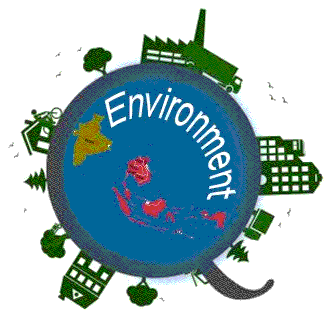
- include an expiry date or “best before” date on their products
- follow “halal” production processes (that is, processes in accordance with or permitted under Islamic Shari’a law) for products with such “halal” labels
- include labels on their products stating the name of the product, size, weight, volume (gross or net), composition, directions for use, production date, details of any side effects, name and address of the “business entity” (it is not clear whether this refers to the manufacturer, the distributor or some other entity) and other information required to be included on the label by law
- provide information in Indonesian relating to the use of the products
- ensure that their products comply with the information contained on the product labels and any required standards under the general law.
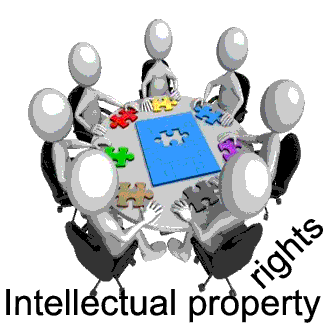
Indonesia is a signatory to the Trade Related Aspects of Intellectual Property Rights Agreement (TRIPS), an agreement scheduled to the General Agreement on Tariffs and Trade (GATT) Agreement of the World Trade Organization. As such, Indonesia has enacted a raft of new legislation from 1997 onwards in order to enhance Indonesia’s compliance with the TRIPS requirements.
- protection of databases
- usage of wire or wireless devices, including the Internet, to operate optical disc products through audio, audio-visual and other telecommunication devices
- court injunctions
- a time limit for settling copyright disputes in the Commercial Court and on appeal to the Supreme Court
- electronic information management and technological control device rights
- protection for hi-tech products
- penalties for violation of related rights
- a penalty for the reproduction of computer programs for illegal and unlawful commercial purposes.

Text coming soon


- do not require a visa to enter into Malaysia: Commonwealth countries (except Bangladesh, Cameroon, Ghana, Mozambique, Nigeria, Pakistan and Sri Lanka), and the United States (except for employment purposes)
- do not require a visa for visits not exceeding two weeks: Iran, Iraq, Libya, Macao SAR (Travel Permit/Portugal CI), Palestine, Sierra Leone, Somalia, South Yemen and Syria
- do not require a visa for visits not exceeding one month: All ASEAN countries (except Myanmar), Armenia, Azerbaijan, Barbados, Belarus, Benin, Bolivia, Bulgaria, Cambodia, Cape Verde, Chad, Chile, Costa Rica, Ecuador, El Salvador, Estonia, Gabon, Georgia, Greece, Guatemala, Guinea Republic, Haiti, Honduras, Hong Kong SAR, Kazakhstan, Latvia, Lithuania, Macao SAR, Macedonia, Madagascar, Moldova, Mauritania, Mexico, Moldova, Monaco, Mongolia, Nicaragua, North Korea, North Yemen, Panama, Paraguay, Portugal, Russia, Sao Tome & Principe, Senegal, Slovenia, Sudan, Surinam, Tajikistan, Togo, Ukraine, Upper Volta, Uzbekistan, Vatican City, Venezuela, Zaire and Zimbabwe
- do not require a visa for visits not exceeding three months: Albania, Algeria, Argentina, Australia, Austria (Vienna), Bahrain, Belgium, Bosnia-Herzegovina, Brazil, Croatia, Cuba, Czech Republic, Denmark, Egypt, Finland, France, Germany, Hungary, Iceland, Ireland, Italy, Japan, Jordan, Kyrgyzstan, Kuwait, Kyrgyz Republic, Lebanon, Liechtenstein, Luxembourg, Morocco, Netherlands, Norway, Oman, Peru, Poland, Qatar, Romania, San Marino, Saudi Arabia, Slovakia, South Korea, Spain, Sweden, Switzerland, Tunisia, Turkey, Turkmenistan, United Arab Emirates, United Kingdom, Uruguay and Yemen
- require a visa to enter into Malaysia: Afghanistan, Angola, Bangladesh, Bhutan, Burkina Faso, Burundi, Cameroon, Central African Republic, China, Colombia, Comoros, Congo Democratic Republic, Congo Republic, Cote d’Ivoire, Djibouti, Equatorial Guinea, Eritrea, Ethiopia, Ghana, Guinea-Bissau, Hong Kong (Certificate of Identity or Document of Identity), India, Liberia, Mali, Mozambique, Myanmar (normal passport), Nepal, Niger, Nigeria, Pakistan, Rwanda, Serbia & Montenegro, Sri Lanka, Taiwan, United Nations (Laissez Passer) and Western Sahara
- require a visa, and permission must be granted by the Ministry of Home Affairs: Israel.


- the FIC guidelines on the acquisition of interests, mergers and takeovers by local and foreign interests are repealed. The FIC will, therefore, no longer process such share transactions, nor impose equity conditions on such transactions. However, the equity conditions imposed by the respective sector regulators will continue to apply. For strategic sectors (such as information and communication technologies, oil & gas, mining, manufacturing etc.), sector regulators are best placed to oversee their respective sectors and to tailor equity conditions according to the requirements and strategic nature of each sector. There will no longer be any equity conditions imposed on sectors not deemed strategic
- the conditions imposed on fund-raising exercises by listed companies has also been significantly eased in the context of raising Malaysia’s attractiveness as a listing destination
- pursuant to the revised FIC guidelines on the acquisition of properties by local and foreign interests effective from 1 January 2010, FIC will only process transactions involving the following: – direct acquisition of property valued at rM20 million and above, resulting in the dilution in the ownership of property held by Bumiputera interest and/or government agency – indirect acquisition of property by other than Bumiputera interest through acquisition of shares, resulting in a change of control of the company owned by Bumiputera interest and/ or government agency, having property more than 50 percent of its total assets, and the said property is valued more than rM20 million.
- pioneer status with income tax exemption of 100 per cent of the statutory income for a period of ten years or ITA of 100 per cent on the qualifying capital expenditure incurred within a period of five years to be offset against 100 per cent of statutory income for each year of assessment
- eligibility for R&D grants (for majority Malaysian-owned MSC status companies).
- creative industries and related services
- educational services
- financial advisory and consulting services
- healthcare and related services
- logistics services ·tourism-related activities.
The ISP includes fiscal and non-fiscal incentives as follows:
- corporate tax exemption for ten years provided operations commence on or before 31 December 2015
- exemption from withholding tax provisions on payments for services and royalties to non-residents for a period of ten years from the date of commencement of operations
- exemption from the FIC’s rulings
- permission to source capital globally ·permission to employ foreign knowledge workers without restriction.
The company must be an IRdA-status company to qualify for the above incentives. Essentially, an IRdA-status company must fulfil the following two general criteria:
- involving in one of the six targeted services-based sectors mentioned above
- be situated in the designated IRdA-approved zones.
The latest incentive package, which was announced by IRdA on 9 October 2007, complements the initial announcement. The Isp is not only intended for Iskandar Malaysia-status companies and foreign knowledge workers, but is now extended to include approved developers and approved development managers.

- gains and profits from a trade, profession and business
- gains or profits from an employment (salaries, remunerations, etc.)
- dividends, interests or discounts
- rents, royalties or premiums
- pensions, annuities or other periodic payments
- other gains or profits of an income nature.

- the contract of employment must be in writing and state the notice period required to terminate it
- wages must be paid by the seventh day after the last day of any wage period. A pay slip must be given to the employee, detailing the wages and deductions made
- normal hours of work must not exceed eight hours per day, 48 hours per week, more than five consecutive hours a period of leisure of not less than 30 minutes’ duration and in excess of a spread over period of 10 hours in one day
- employees are entitled to paid holidays on at least 10 gazette public holidays in any one calendar year and on any day declared as a public holiday under section 8 of the Holiday Act 1951
- employees must be given eight days’ paid annual leave if having less than two years of service, 12 days’ paid annual leave if having two years but less than five years of service, and 16 days’ paid annual leave if having five or more years of service
- employees are entitled to 14 days’ paid sick leave if having less than two years of service, 18 days’ paid sick leave if having two but less than five years of service and 22 days’ paid sick leave if having over five years of service per calendar year, and where hospitalization is necessary, up to a maximum of 60 days’ paid sick leave per calendar year
- female employees are entitled to not less than 60 days’ consecutive paid maternity leave for up to five surviving children
- overtime work must be paid at a minimum of one and a half times the hourly rate of pay on normal working days, twice the hourly rate on rest days and triple the hourly rate on public holidays
- an employer may not terminate the services of a local employee in favor of a foreign employee and, if retrenchment is necessary, to first terminate the services of all foreign employees before the locals.
- membership of a trade union be confined to employees within any particular establishment, trade, occupation or industry
- registration of all trade unions
- a trade union to obtain prior consent by secret ballot of at least two-thirds of total members before organizing a strike
- all unions to be inspected regularly to ensure compliance with the laws.
Relations between employers and workmen and their trade unions, including the prevention and settlement of trade disputes, are regulated by the Industrial Relations Act 1967, which covers:
- the protection of the legitimate rights of employers, workmen and their trade unions
- the procedure for submission of claims for recognition and the scope of representation of trade unions and collective bargaining
- matters not allowed to be included in the proposals for collective bargaining, such as those relating to promotion, transfer, recruitment, retrenchment, dismissal, reinstatement, allocation of duties, and prohibition of strikes and lockouts over any of these issues
- the prohibition of strikes and lockouts once a trade dispute has been referred to the Industrial Court and on any matter covered by a collective agreement or by an award of the Industrial Court
- the protection of pioneer industries during the initial years of their establishment against any unreasonable demands from a trade union.
- for manufacturing companies with foreign paid-up capital of uS$2 million and above, automatic approval is given for up to 10 expatriate posts, including five key posts. Expatriates may be employed for up to a maximum of ten years for executive posts and five years for non-executive posts
- for manufacturing companies with foreign paid-up capital of more than uS$200,000 but less than uS$2 million, automatic approval is given for up to five expatriate posts, including at least one key post. Expatriates may be employed for up to a maximum of ten years for executive posts and five years for non-executive posts
- for manufacturing companies with foreign paid-up capital of less than uS$200,000, applications may be considered on a case-by-case basis for both key posts and time posts. Applications for key posts may be considered where the foreign paid-up capital is at least RM500,000. Time posts can be considered for up to ten years for executive posts that require professional qualifications and practical experience and five years for non-executive posts that require technical skills and experience. Malaysians must be trained to eventually take over these time posts.
Employment passes for key post holders are generally issued on a five-year renewable basis. All employment passes for non-key post holders are valid for the period approved for the post. Employment pass holders will be issued with multiple entry visas valid for the duration of the relevant employment passes.

- the laws of Indonesia govern the agreement
- disputes are to be referred exclusively to foreign arbitration and may not be referred to Indonesian courts for resolution (see below).
- the country in which the award is handed down is also a party to the New York Convention
- the award does not contravene national order
- the District Court has provided an execution order in relation to the award.

- include an expiry date or “best before” date on their products
- follow “halal” production processes (that is, processes in accordance with or permitted under Islamic Shari’a law) for products with such “halal” labels
- include labels on their products stating the name of the product, size, weight, volume (gross or net), composition, directions for use, production date, details of any side effects, name and address of the “business entity” (it is not clear whether this refers to the manufacturer, the distributor or some other entity) and other information required to be included on the label by law
- provide information in Indonesian relating to the use of the products
- ensure that their products comply with the information contained on the product labels and any required standards under the general law.

Indonesia is a signatory to the Trade Related Aspects of Intellectual Property Rights Agreement (TRIPS), an agreement scheduled to the General Agreement on Tariffs and Trade (GATT) Agreement of the World Trade Organization. As such, Indonesia has enacted a raft of new legislation from 1997 onwards in order to enhance Indonesia’s compliance with the TRIPS requirements.
- protection of databases
- usage of wire or wireless devices, including the Internet, to operate optical disc products through audio, audio-visual and other telecommunication devices
- court injunctions
- a time limit for settling copyright disputes in the Commercial Court and on appeal to the Supreme Court
- electronic information management and technological control device rights
- protection for hi-tech products
- penalties for violation of related rights
- a penalty for the reproduction of computer programs for illegal and unlawful commercial purposes.

Text coming soon
CONTACT WITH US
Give us your information



